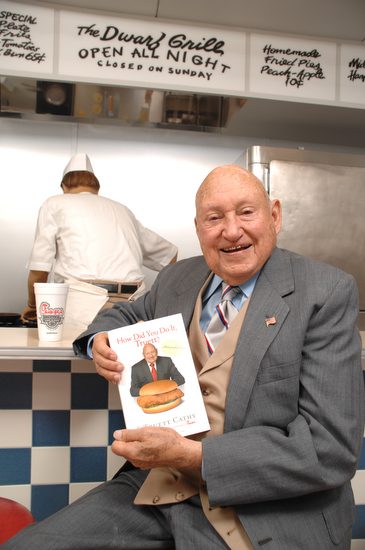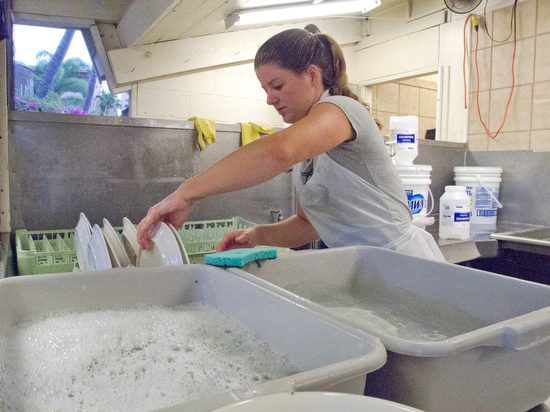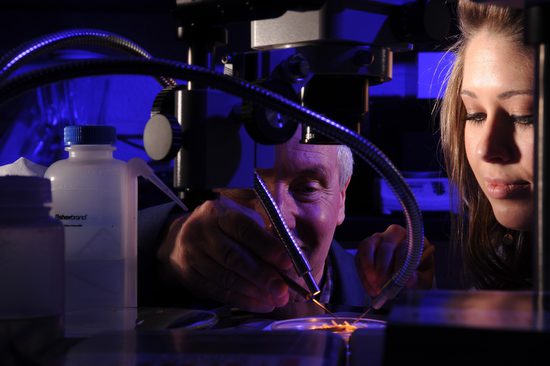| The student is getting face paint during the Jell-O Wars at Anderson University. |
Too many people join associations as if buying tickets to a sporting event. They want to sit in their comfortable seats and watch others perform. When considering joining an organization, one of the first questions most people ask is, “What do I get for my membership?” That’s a valid question, and most organizations list the benefits their members will receive.
Ask Not What an Organization Can Do for You
But sometimes, the more important question is what you can give. I am reminded of the famous words of John F. Kennedy:
“And so, my fellow Americans, ask not what your country can do for you; ask what you can do for your country. My fellow citizens of the world, ask not what America will do for you, but what we can do for the freedom of man.”
Kennedy helped forge the idea of service by creating the Peace Corps; he believed the country’s success depended on people becoming involved. Focusing on service rather than entitlement can be a key to our professional success and personal fulfillment.
When you join a group, receiving the newsletter and being listed on the membership rolls will have little impact on your success. Unless you’re willing to commit yourself, you’d be better off saving the dues money and not wasting your time — or the groups.
The leading figures in most industries are consistently those who volunteer in their professional organizations. They network with others, they help organize competitions and awards for the industry, and they mentor others in their industry.
Today there are groups whose sole purpose is to teach their members how to be successful. Although these groups may teach you how to be a better networker, if the only reason you join is to promote your success, you will probably fail.
Go Where Your Passion Leads You
Success through an organization starts with matching your passions with volunteering. You can become involved in a community theater, entertain others and become known in your neighborhood. Through your involvement, people will get to know you, and you will get to know others. You can join the community of faith through a local congregation or play a sport in a local league … if you follow your passion, you’ll naturally want to become more involved.
You know you’re plugged into a group when others depend on you. People will not only want you around because of what you are giving to the organization but will come to value your friendship. They get to know you and appreciate your passion.
Looking for leaders not followers
Working with universities, I have become good friends with some people overseeing the recruiting. At Georgia Tech, they changed how they recruit. One of the changes had to do with the list of organizations a person was involved in; they now only want you to list your top five.
Why only five? They are recruiting the leaders of tomorrow, and they are looking for leaders — not just members. An Eagle Scout is more than just a Boy Scout.
Two groups I have worked with take this concept of involvement through service way beyond most other groups. As a result, they transform those in these organizations and profoundly affect those around them. These organizations are Youth With a Mission and Chick-fil-A.

Truett S. Cathy
The founder of Chick-fil-A, Truett Cathy, can be seen today picking up the trash around a store before he goes in. All of his managers are trained to do every job regularly. They can be seen cleaning the bathrooms. When a Chick-fil-A event is over, everyone in the organization volunteers to help clean up.

When students enroll at the University of Nations, part of Youth With a Mission, they are all expected to work while attending school. They have found that some people are like Dr. Jekyll and Mr. Hyde. They talk a good game and sound caring and warm, but a different person emerges on the job. The Mr. Hyde side might believe they are better than others; they might not want to do specific jobs they think are beneath them.
Choose Wisely
We can learn a lot about ourselves by volunteering. It can even change who we are. Volunteering helps smooth out those rough edges we all have.
Accountability has influenced most organizations today. People don’t want to waste their time or money. They want to make a lasting difference.
Habitat for Humanity changes not only those who receive the homes; those doing the building is changed as well. The first family to receive a Habitat home was so transformed that each of the children went to college and became successful. Habitat has provided volunteers with the opportunity to enrich their lives while making a real difference in their communities.
The two wealthiest men in the world, Warren Buffet, and Bill Gates, have joined together to give money back to society. Their foundation’s activities focus on world health — fighting diseases such as malaria, HIV/AIDS, and tuberculosis — and improving U.S. libraries and high schools.
In his book Giving, Bill Clinton tells stories of people who give. These remarkable stories suggest that giving takes many forms and emphasize that offerings of time, skills, objects, and ideas can be just as critical as monetary contributions.
We have a choice. We can watch the game of life or be one of the leading players. Choose wisely; your success — and fulfillment — may depend on it.





